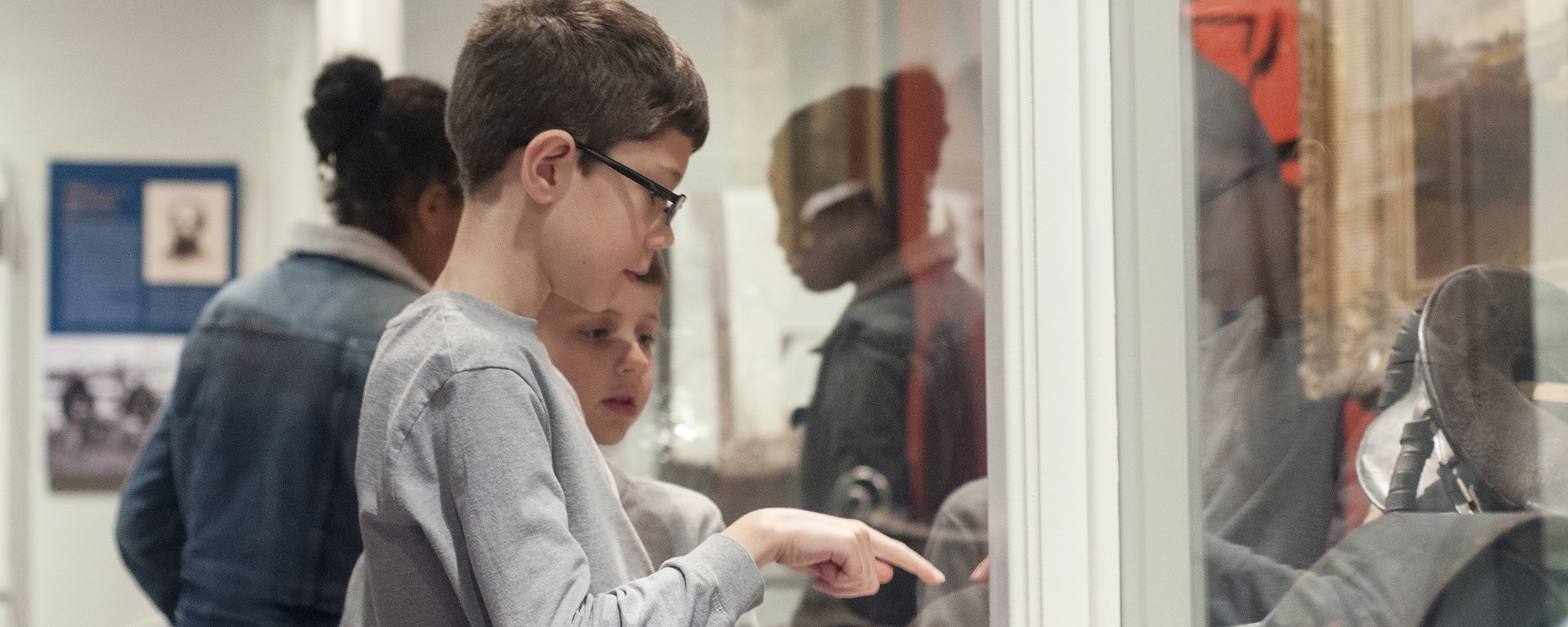Field Trips

The museum is open Tuesday through Saturday, 10:00AM to 4:00PM.
click here to Book a School visit to the Montpelier Capitol Complex
CLICK HERE FOR INFORMATION ABOUT VIRTUAL SCHOOL PROGRAMS
Information about on-site field trips
The Vermont History Museum in Montpelier and its award-winning permanent exhibit, Freedom and Unity, is a great place for students to discover over 400 years of Vermont history.
Students can explore an Abenaki wigwam, send a telegraph message, and immerse themselves in a World War-II era living room. Special exhibits in the National Life Gallery, Calder Gallery and Local History Gallery tell more Vermont stories. See current exhibits here.
Student groups are scheduled for self-guided tours of the museum exhibits. Staff will supply focusing questions, along with clipboards and pencils, to help guide students' exploration of the museum. Recommended time is 45 minutes. Self-guided visits are appropriate for all grades. Admission fees are waived for school groups and homeschool groups who schedule in advance. Please see more information below about booking a self-guided tour.
Educators can select a Hands-On History Program to enhance a school trip to the museum. The Hands-On History Programs use primary sources and artifacts to focus on Vermont history stories. The program fee is $3.00 per student, no charge for teachers or chaperones. Recommended time is 45 minutes per class. Programs are appropriate for students in grades 3 and up.
- You Be the Historian: Investigating an 1880s Vermont Farm Family - students act as researchers, curators, and archaeologists to discover details about the Wheeler family who lived in Calais in the 1880s.
- Mystery Artifacts: How Museums Help Share the Past - (recommended K through 3) young learners will investigate how museums help share the past through a story time and close looking activity with artifacts.
- From Italy to Vermont: Exploring Immigration through Primary Sources - (recommended grades 6 and up) students investigate census records, photographs, maps and other historic documents to learn about immigrants in Vermont in the early 1900s, with a specific focus on Barre and the granite industry.
- Mapping Vermont History - students investigate a variety of Vermont maps from different time periods to identify the dates of mystery maps and to understand how Vermont has changed over time.
- “Send me a box”: Letters from Vermont Civil War Soldiers - (recommended grades 6 and up) students read and analyze letters from Civil War soldiers, specifically focusing on items soldiers requested or received from home.
- Pandemics Then and Now - students analyze Vermont primary sources from the COVID-19 pandemic and the 1918-19 Influenza pandemic and consider how archives document the experiences of ordinary people.
- Learning from the Past: Town Meeting and the Green Mountain Parkway - students examine arguments from the 1930s Green Mountain Parkway debate and participate in a mock town meeting discussion and vote.
-
The Buffalo Soldiers: Life in the 10th Cavalry - (recommended grades 6 and up) students examine primary sources related to the 10th cavalry, the first all-Black regiment stationed at Fort Ethan Allen, to learn more about the impact the soldiers had in Vermont.
How to schedule a field trip
1. Complete an online reservation request form on our online booking page
2. Wait to hear back from our staff. Once we receive your reservation request, we will review it and reach out to finalize the date and time of your reservation.
3. Receive a confirmation. We will send you a confirmation email with further details about your visit!
Any questions? Please contact Kate Malmstrom, Program Assistant, at program.assistant@vermonthistory.org, or (802) 479-8519.
Did you know? Many student groups combine their visit to the Vermont History Museum with a tour of the nearby Vermont State House. You can book a State House tour on our online booking site.
Visit the History Center
School groups and homeschool groups are welcome to visit the Leahy Library at the Vermont History Center. Appointments are required. An introduction to primary sources and assistance with research may be available. Contact education@vermonthistory.org